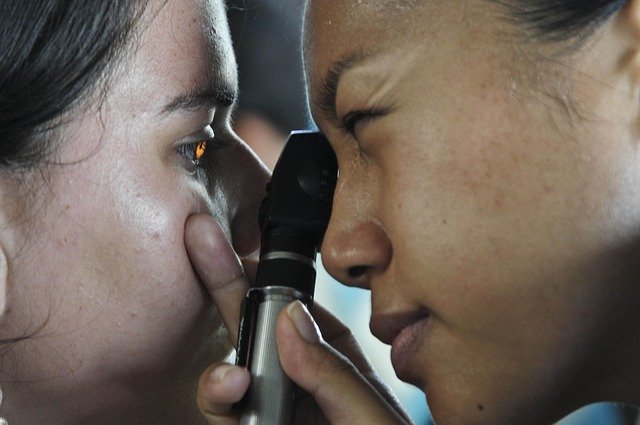Macular Degeneration Treatment Options Explained
Macular degeneration treatment options include nutritional supplements and diet changes to support retinal health, prescription eye injections for fluid control in wet macular degeneration, laser procedures to seal leaks, and surgical approaches or vision implants for advanced sight restoration.

What is macular degeneration and how does it affect vision?
Macular degeneration is a disorder that affects the macula, the central part of the retina responsible for sharp, detailed vision. As the condition progresses, it can lead to blurred or distorted central vision, making everyday tasks like reading, driving, and recognizing faces increasingly difficult. There are two main types: dry macular degeneration, which is more common and progresses slowly, and wet macular degeneration, which is less common but can cause rapid vision loss if left untreated.
What are the early treatment options for macular degeneration?
For early-stage macular degeneration, particularly the dry form, treatment often focuses on lifestyle changes and nutritional support. Eye doctors may recommend a diet rich in antioxidants, including leafy green vegetables, fish high in omega-3 fatty acids, and colorful fruits. Nutritional supplements, such as the AREDS2 formula (Age-Related Eye Disease Study 2), which contains vitamins C and E, zinc, copper, lutein, and zeaxanthin, have shown promise in slowing the progression of intermediate to advanced dry macular degeneration.
How effective are prescription eye injections for wet macular degeneration?
Prescription eye injections are a cornerstone treatment for wet macular degeneration. These injections, known as anti-VEGF (Vascular Endothelial Growth Factor) therapy, work by blocking the growth of abnormal blood vessels that leak fluid into the retina. Medications like Lucentis, Eylea, and Avastin are commonly used. These treatments can be highly effective in stopping or slowing vision loss, and in some cases, even improving vision. However, they typically require ongoing injections to maintain their effectiveness.
What role does laser treatment play in managing macular degeneration?
Laser treatment for macular degeneration has evolved over the years. Traditional laser photocoagulation, which uses a high-energy beam of light to seal leaking blood vessels, is now less common due to the risk of scarring. However, a newer approach called photodynamic therapy (PDT) combines a light-sensitive drug with a low-power laser to target abnormal blood vessels while minimizing damage to surrounding tissue. PDT is sometimes used in combination with anti-VEGF injections for certain cases of wet macular degeneration.
Are there surgical options for advanced macular degeneration?
For advanced cases of macular degeneration, surgical interventions may be considered. One such option is submacular surgery, where a surgeon removes abnormal blood vessels or blood accumulation beneath the macula. Another innovative approach is the implantation of telescopic lenses, such as the Implantable Miniature Telescope (IMT), which can help improve central vision in some patients with end-stage macular degeneration. These surgical options are typically reserved for cases where other treatments have not been successful or are no longer effective.
In the United States, researchers are exploring promising new treatments for macular degeneration. Stem cell therapy, gene therapy, and drug-delivery implants are among the cutting-edge approaches being studied. Some clinical trials are investigating the potential of reprogramming a patient’s own cells to replace damaged retinal tissue, offering hope for future regenerative treatments.
How do treatment costs and options compare for macular degeneration?
When considering treatment for macular degeneration, it’s important to understand the associated costs and available options. Here’s a comparison of some common treatments:
| Treatment | Provider Type | Cost Estimation |
|---|---|---|
| AREDS2 Supplements | Over-the-counter | $20-$60 per month |
| Anti-VEGF Injections | Ophthalmologist | $1,000-$2,500 per injection |
| Photodynamic Therapy | Retinal Specialist | $2,000-$4,000 per session |
| Implantable Miniature Telescope | Ophthalmic Surgeon | $15,000-$25,000 for surgery |
Prices, rates, or cost estimates mentioned in this article are based on the latest available information but may change over time. Independent research is advised before making financial decisions.
It’s important to note that many of these treatments, particularly the more expensive options like injections and surgery, may be partially covered by insurance, including Medicare. However, coverage can vary significantly depending on the specific plan and treatment necessity. Patients should consult with their healthcare providers and insurance companies to understand their coverage options and potential out-of-pocket expenses.
While macular degeneration remains a challenging condition, the range of available treatments offers hope for many patients. From nutritional support and lifestyle changes in early stages to advanced surgical interventions for severe cases, the field of macular degeneration treatment continues to evolve. As research progresses, new therapies may emerge, potentially offering even more effective ways to manage this condition and preserve vision.
This article is for informational purposes only and should not be considered medical advice. Please consult a qualified healthcare professional for personalized guidance and treatment.
The shared information of this article is up-to-date as of the publishing date. For more up-to-date information, please conduct your own research.




